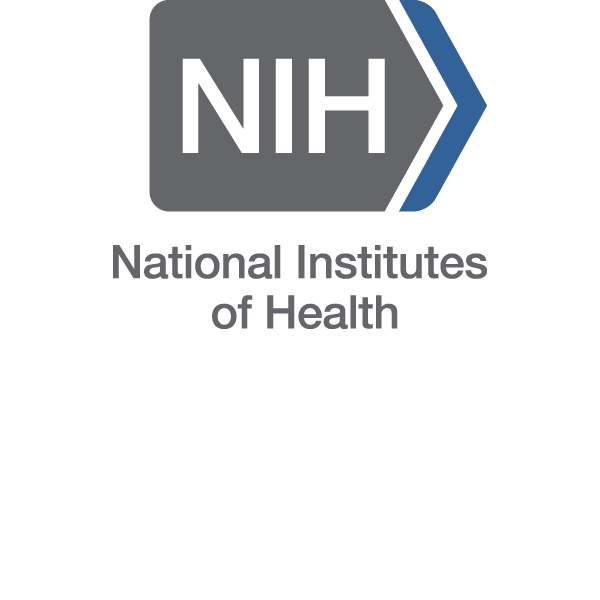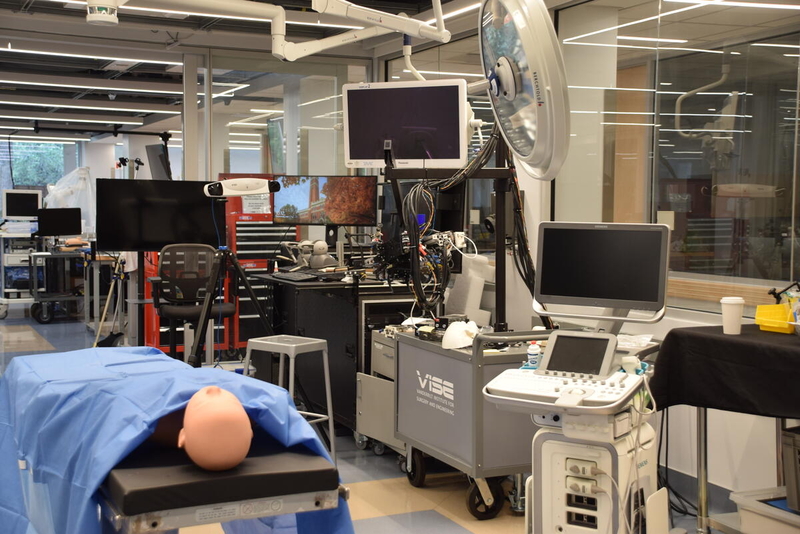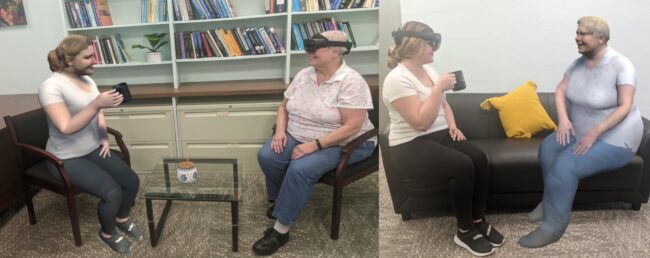

-
$164.0M
NIH Funding at Vanderbilt
FY 2023 -
$26.1M
National Institute of General Medical Sciences
-
$15.8M
National Institute of Diabetes and Digestive and Kidney Diseases
-
$14.1M
National Institute of Mental Health
-
$17.2M
National Cancer Institute
Vanderbilt-developed treatments for Alzheimer’s, Parkinson’s, schizophrenia, Charcot-Marie-Tooth disease, epilepsy
At Vanderbilt, researchers are developing the next wave of state-of-the-art therapeutics to address major diseases—all due to the initial investment in basic research from the National Institutes of Health. Those investments have led to partnerships with leading pharmaceutical companies who are working to commercialize the therapeutics. Diseases these researchers are developing treatments for include:
- Alzheimer’s Disease—In a landmark collaboration, Vanderbilt University’s Warren Center for Neuroscience Drug Discovery and ACADIA Pharmaceuticals Inc. are developing and commercializing treatments for central nervous system disorders, such as Alzheimer’s disease and schizophrenia. Originating from Vanderbilt’s research and backed by NIH, VU319 has entered its first human trial, showcasing Vanderbilt’s unique capability to drive a drug from discovery to clinical testing independently.
- Parkinson’s Disease—WCNDD has developed a Parkinson’s disease drug that has been selected for Phase 1 clinical trials by Appello Pharmaceuticals Inc. The drug is intended to work with an existing Parkinson’s disease treatment, levodopa, to lengthen the time that people gain relief from their Parkinson’s symptoms without experiencing debilitating side effects such as dyskinesias (uncontrollable involuntary movements).
- Schizophrenia—Researchers in the School of Medicine Basic Sciences have identified a potential target for novel treatments of schizophrenia in the central nervous system that may provide relief for patients, allow them to reintegrate into and contribute to society, and diminish the burden on our health care systems. Modification of the drug target reverses working memory deficits, a hallmark of schizophrenia for which there is currently no treatment.
- Charcot-Marie-Tooth Disease—Building on funding from NIH, Vanderbilt has partnered with Ancora Innovation LLC on an early-stage drug discovery project targeting CMT disease, an inherited disorder involving progressive damage to peripheral nerves that affects one in 2,500 people. VUSM researchers used NIH funds to illuminate the cause of CMT disease.
- Epilepsy—The Ancora-Vanderbilt collaboration is creating treatments for an infant-onset seizure disorder caused by mutations in a gene that affects neurotransmission in the brain and results in abnormal electrical activity. These conditions are resistant to most current epilepsy treatments. Thus, new therapeutic approaches are desperately needed.
NIH training and professional development
At Vanderbilt, a significant NIH funding mechanism consists of National Research Service Awards, which include institutional training grants and fellowship (F) awards that support training doctoral students in the biomedical sciences. The Vanderbilt Medical Scientist Training Program, which has been supported by NIH training grant (T) awards since 1976, prepares students for faculty and research positions with an integrated curriculum that features a strong core education in medicine and intensive training in scientific inquiry. Successful completion of the program leads to both M.D. and Ph.D. degrees, preparing the next generation of physician-scientists. The Initiative for Maximizing Student Development at Vanderbilt University, which has been supported by NIH awards since 2000, aims to increase the number of Ph.D.’s. awarded to graduate students in biomedical research who are underrepresented in science.
Currently, Vanderbilt has 83 individual F awards and 23 institutional training awards, which support more than 250 students and provide nearly $13.5 million in annual funding. Students supported by NIH NRSA fellowships have contributed to an understanding of fundamental biological principles and have discovered therapeutic strategies for treating diseases like Charcot-Marie-Tooth and COVID-19.
Vanderbilt University Medical Center and Vanderbilt University are launching a $17 million multiyear transformative program with support from the NIH to accelerate diversity, equity, inclusion and belonging in the biomedical research community. The institutions will build on prior successes in recruitment to strengthen hiring, promotion, and retention efforts for diverse, early-career investigators as a foundational element of the Vanderbilt Faculty Institutional Recruitment for Sustainable Transformation Program (V-FIRST).

Vanderbilt Institute for Surgery and Engineering
The Vanderbilt Institute for Surgery and Engineering, supported in part by $30 million in active NIH grants, many of which are R01s, is an interdisciplinary, trans-institutional institute that supports interactions between the university’s Schools of Engineering and Medicine to develop methods, devices, algorithms and systems to improve patient care. The program adapts to contemporary treatment paradigms and strives to develop new understandings of disease and dysfunction by studying the procedure. VISE studies procedures like brain tumor surgery, neuromodulation implants, and robotic surgeries in the lung, prostate, and kidney, to arterial and ablation therapies in the liver, and radio-oncological procedures in the breast and eye.
Eighty-one affiliated graduate students have earned their doctorates since VISE’s start, and there are 120 current graduate students and 25 undergraduate students engaged in research at VISE. In addition, 42 patents and 21 licenses have come out of this collaborative work. VISE is also supporting an NIH-funded program for engineering Ph.D. students by providing immersive levels of clinical contact.
NIH SBIR/STTR funding at Vanderbilt
Six companies with ties to Vanderbilt received highly competitive Small Business Innovation Research/Small Business Technology Transfer grants from NIH. Those included:
- Finally, LLC – a company that is developing a precision medicine molecular-level skin condition diagnostic.
- HeroWear LLC – designs and manufactures light, scientifically designed elastic back-assist exosuits for active workers that reduces the strain on the lower back during vigorous tasks such as those common in the logistics industry.
- International Femtoscience – develops and utilizes a proprietary process using functionalized diamond nanoparticle technologies to produce products as additives for enhanced thermal and mechanical performance of liquids and solids in extreme environments.
- SkyNano LLC – has developed a novel technology that offers almost permanent (>1,000 years) storage of CO₂ emissions by capturing and converting the CO₂ into solid carbon materials used every day by consumers (batteries, tires, plastics, etc.).
- SynchroMotion LLC – develops and designs the next generation of rehabilitation robotic devices including several prosthetic devices for the knee, ankle and foot with scientists and engineers from the fields of mechatronics, biomechanics and design.
- Yaya Scientific LLC – innovative, diagnostic, therapeutic and integrated hardware solutions for biomedical problems.
The SBIR/STTR program encourages small businesses to participate in federal research and development with the potential for commercialization. This program plays a vital role in the innovation ecosystem at Vanderbilt by supporting startups in the early stages of research and development.
The Wond’ry, Vanderbilt’s Innovation Center, and the Center for Technology Transfer and Commercialization at Vanderbilt University contributed to the startups’ growth in various capacities, from assisting with ideation and R&D to facilitating invention disclosures and commercialization services. Founders of these startups span Vanderbilt faculty, alumni, staff and students.
According to Launch Tennessee, companies awarded their SBIR/STTR matching funds have created more than 939 direct jobs and had an economic impact of $146,125,214 in Tennessee—a return of $11.24 for every public dollar invested into the program.
Foundational Research at Vanderbilt with Potential Biomedical Applications
The translational research possible at Vanderbilt is thanks to foundational research conducted years ago. This big-picture research has practical applications in a variety of health contexts.
- Vanderbilt biochemists have received NIH funding to understand DNA replication stress response; when unstable, this response can cause developmental disorders and cancer.
- A group of Vanderbilt researchers funded by NIH became the first group to uncover the 3D structure of the sodium/iodide symporter, also called NIS. NIS is integral to how thyroid cancer is treated, and understanding its structure could improve treatment methods.
- Vanderbilt researchers, with the support of the National Institute on Drug Abuse, have demonstrated a role for dopamine signaling in novelty-based learning—a finding that could have major impacts on how neurological diseases are treated.
VU chemists awarded prestigious NIH MIRA grants
NIH’s Maximizing Investigators’ Research Award (MIRA) provides researchers of general medical sciences with more than $1.9 million each over a five-year period.
- An associate professor of chemistry has been funded to study molecular compounds with metal-carbon bonds and how they could ultimately benefit our health.
- An assistant professor of chemistry applies machine learning to study the synthesis of small molecules known as natural products, which she expects will culminate in the discovery and/or biosynthesis of new organic compounds that can be used to treat various human diseases.
- As assistant professor of chemistry seeks to discover new enzymes that could help us synthesize drugs or treat food allergies.
Developing substance use disorder prediction technology
An assistant professor in the Vanderbilt University School of Nursing received a a $2.3 million, five-year grant from the National Institute on Drug Abuse to develop technology that can identify through electronic health records people who are likely to have substance use disorder, with the specific application of supporting genetic research across multiple organizations. As a result of the NIDA grant, the research team is able to add machine learning scientists, computational linguists, statisticians, data scientists, software developers and geneticists to the team. The software they are developing will lend itself to use surrounding other psychiatric and mental health disorders.
Studying child mental health
Researchers from Vanderbilt’s Peabody College received a four-year, $3.2 million grant from NIH to support research into how school-based health interventions affect children’s mental health and education outcomes.
Schools are serving children with ever-increasing mental health needs, which were amplified by the COVID-19 pandemic. U.S. public schools serve as the primary entry point to mental health services for children, and school-based health centers, or SBHCs, increasingly are a “medical home” for vulnerable children. The researchers plan an in-depth study across Tennessee of school-based interventions that are designed to provide primary care and/or behavioral and mental health care to K-12 students.
The project is being conducted in partnership with the Tennessee Department of Education, Tennessee Department of Health and the Tennessee Education Research Alliance.

Using augmented reality to ease loneliness in older adults
As the population of older adults continues to boom, Vanderbilt researchers are leading a team and partnering with two Middle Tennessee long-term care facilities to investigate how augmented reality technologies can ease loneliness among residents. Using grants from the National Science Foundation and National Institutes of Health totaling nearly $2.7 million, the team is exploring ways to transport realistic virtual avatars of families and friends of older adults in their LTC environment for joint social activities to increase social connection and engagement in older populations.
The new research will focus on creating next-generation augmented reality technologies, which superimpose virtual avatars and other digital images on real-world environments. That is in contrast to virtual reality, which fully immerses a person in a synthetic setting. A large percent of the communication in human interaction consists of nonverbal behavior, so researchers will refine avatar design to maximize what is known as social presence, a feeling that you’re generally interacting with a person.
For more information, please contact the Vanderbilt Office of Federal Relations:
Christina West 202-216-4370 | Heather Bloemhard 202-216-4368
federalrelations@vanderbilt.edu
FY 2023